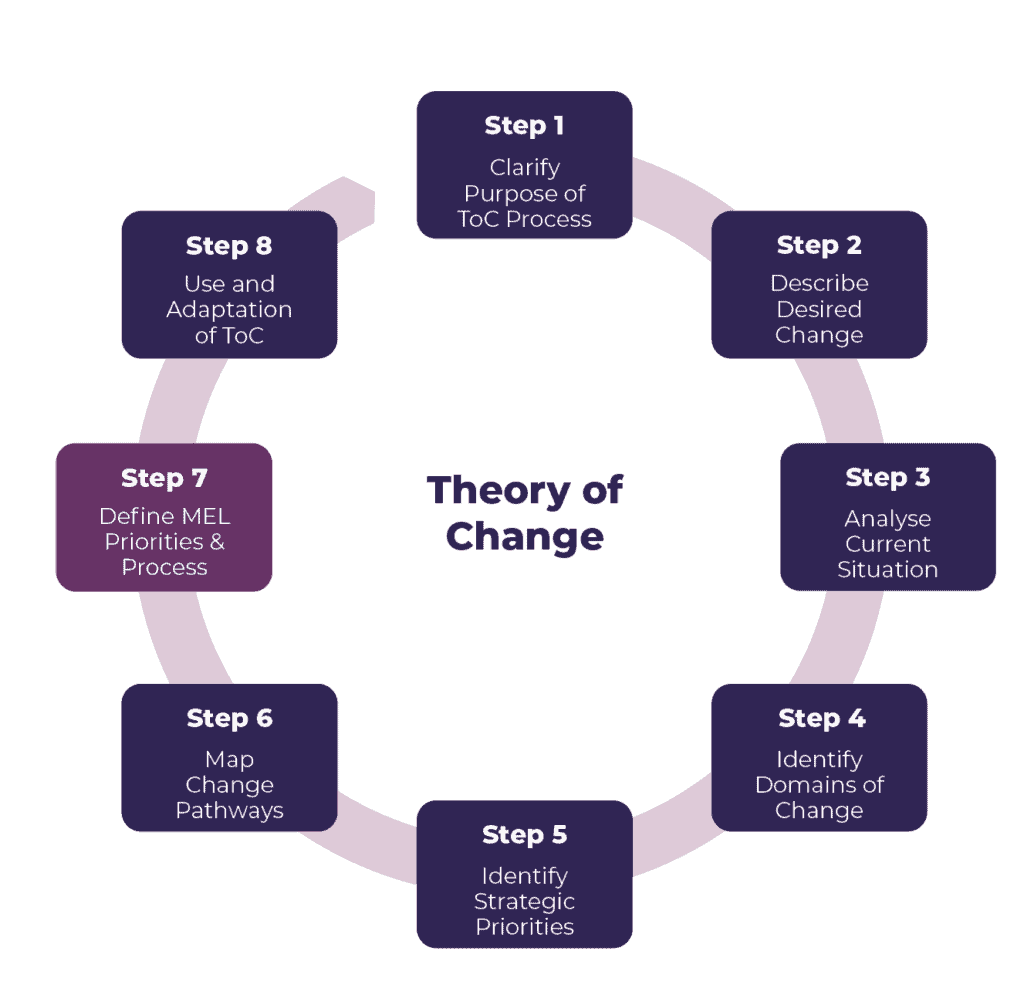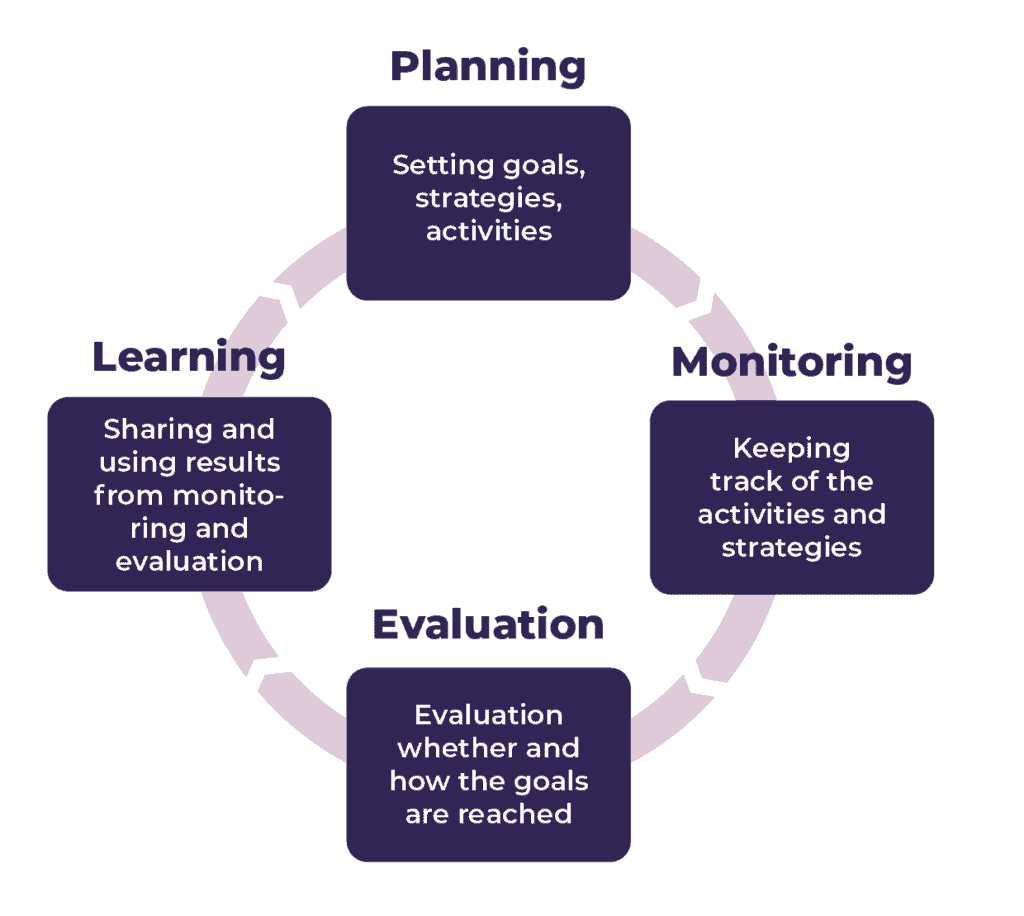Step 7: Define the MEL (Monitoring, Evaluation & Learning)

A Theory of Change is guiding for an organisation or programmes process of Planning, Monitoring, Evaluation and Learning (PMEL). PMEL consists of four elements (P, M, E and L – although the P and L are in some cases left out) that work together through all programme and organisational cycles.
By Planning, we mean the process of setting goals and targets, assigning responsibility, and deciding on time frames for certain activities.
Monitoring is the tracking of activities while they are ongoing, while Evaluation happens after the implementation, and encompasses measuring the impact of the activities.
Learning happens throughout the cycle, and includes the sharing of information and continuously improving of programs. It is important to think about how you will share information retrieved from monitoring and evaluation activities, and how you will use the information. In addition, it is important to establish when and how you will review the ToC.

Some Core Questions:
- Which information/data/evidence needs to be collected, by whom, how, and when?
- What will this information tell us about our ToC?
- What is the intended use of the information or evidence?
- Is another entity or actor already collecting the data we need? Do we have access to that information, can we use it?
- Are we capable of collecting the information (expertise, costs, capacity, etc.)?
Example: For the child marriage programme, you need to think about how you will monitor all the activities. For example, for each of the mentioned sharing/discussion sessions with young people, a report will be made. Then, you need to think about how you will evaluate whether you’ve reached your goals, for example on including social norms on child marriage (as one of the pillars, the others also should be included) in a baseline, midterm and end line study. You will all add this in a framework, the PMEL framework, that also includes the ‘learning’: what you will do with the results gathered through monitoring and evaluation. A simplified example of how part of such a framework might look is pictured below in table 1 (you might want to include more, like timing, indicators, who’s responsible for reporting, etc).
Pathway of change | Activity | Monitoring | Evaluation | Learning |
Changing social norms on child marriage | Sharing/ discussion session with young people on concept of child marriage | Report for each of the session | Baseline, midterm and end line research on social norms on child marriage | Sharing sessions among partners, together, followed by review of strategies and activities |

